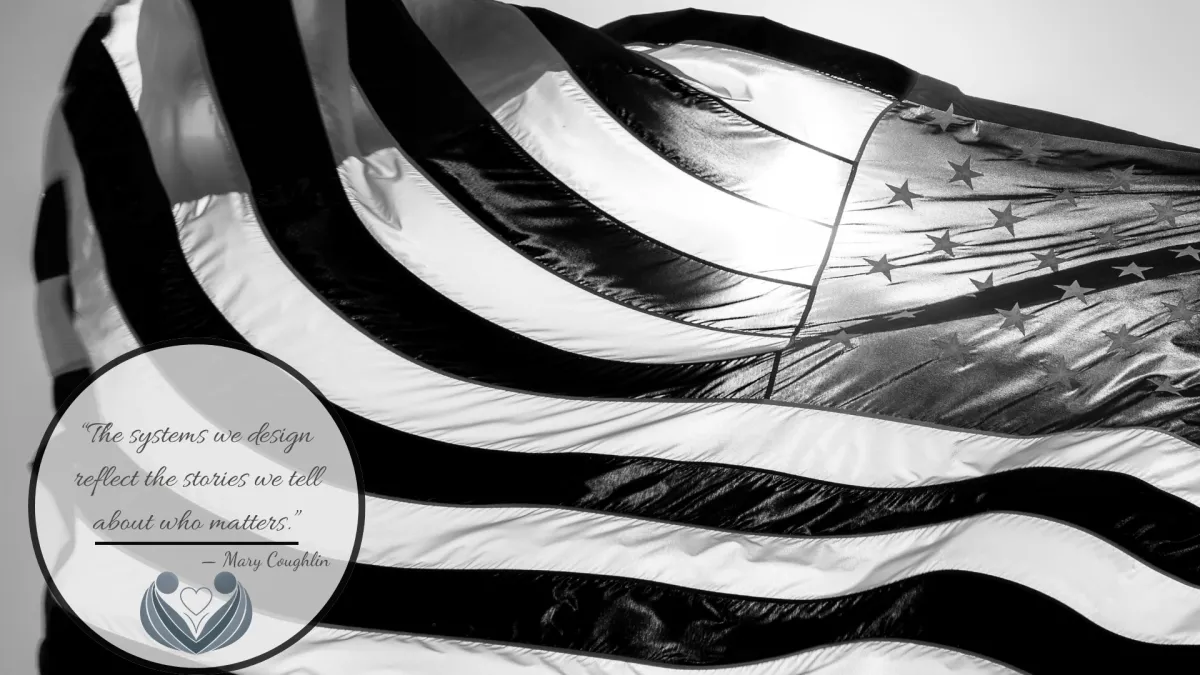
This Is Not Normal: What’s Hidden in the “One Big Beautiful Bill”
“The systems we design reflect the stories we tell about who matters.” —Mary Coughlin
This Is Not Normal: What’s Hidden in the “One Big Beautiful Bill”
How one piece of legislation quietly rewrites the American social contract—and why we must not look away.
A bill is moving through Congress. It’s called the "One Big Beautiful Bill Act" (H.R. 1)—a name that suggests unity and hope. But the contents of this legislation tell a very different story.
This is not just a budget bill. It’s a blueprint for disinvestment in care, erosion of rights, and the unraveling of our shared responsibilities.
What’s in the Bill (That Deserves Deeper Scrutiny)
1. It imposes new barriers to basic needs like food and healthcare.
From expanded work requirements for food assistance to limitations on Medicaid eligibility, this bill places critical supports further out of reach for those already facing adversity—especially disabled individuals, pregnant people, unhoused veterans, and low-income families. These are policies that compound structural trauma under the guise of “efficiency.”
2. It scales back protections for our environment and future generations.
The bill removes funding for clean air, climate resilience, and green infrastructure, while expanding fossil fuel extraction and removing emissions safeguards. This isn’t just deregulation—it’s a step away from our responsibility to steward the planet for those who come after us.
3. It reshapes immigration policy through restriction, not restoration.
Fees are introduced or increased for nearly every immigrant process—from seeking asylum to maintaining legal work status—while detention and deportation are expanded. These provisions risk turning our systems of welcome into systems of exclusion and fear, disproportionately impacting already-marginalized communities.
4. It prioritizes military and surveillance expansion over human wellbeing.
Billions are directed toward militarization—both abroad and at the border—while social infrastructure like education, housing, and public health are scaled back. This imbalance reflects a worldview where safety is pursued through force, rather than through connection, care, and equity.
5. It uses familiar language to mask unfamiliar harm.
With phrases like “Make America Win Again” and new tax instruments labeled “Trump Accounts,” the bill attempts to frame its provisions as pro-family and pro-worker. But beneath the rhetoric lies a pattern: disinvestment in community, disconnection from care, and disruption of trust.
Why This Matters
Policies are not neutral. They either widen or narrow the circle of belonging.
They either help us heal—or deepen the wounds we carry.
And this bill, as written, moves us away from a trauma-informed, justice-rooted society.
For those of us who believe in the inherent worth of all people, in shared responsibility, and in the possibility of a more connected, compassionate world—this is a moment to pause, look closely, and speak with clarity.
But We Are Not Powerless
We are the ones who remember that:
Care is a form of resistance.
Belonging is a practice, not a promise.
And every policy is a mirror of our values, whether named or denied.
In a time of great unraveling, we still have the capacity—and the responsibility—to weave something different.
What You Can Do Now
Read and share this post. Help make the hidden visible.
Reach out to your elected officials. Ask where they stand on H.R. 1—and why.
Join our upcoming community gathering to learn more and reflect together (date & link coming soon).
Sign The People’s Declaration to affirm our shared vision of dignity, justice, and care.
Reflect and respond: What kind of ancestor do you want to be in this moment?
This is not normal. But your clarity is not ordinary.
This is not inevitable. But your courage is real.
Let’s meet this moment together.
In bold defiance and justice,
Mary
